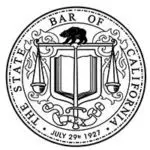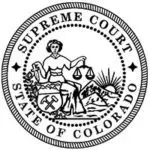8075 W 3rd St, Los Angeles, CA 90048
468 N Camden Dr, Beverly Hills, CA 90210
1505 Osceola St, Denver, CO 80204
468 N Camden Dr, Beverly Hills, CA 90210
1505 Osceola St, Denver, CO 80204
Divorces involving child custody are never easy. When children are part of the process, emotions run deeper, the stakes are higher, and issues such as manipulation or dishonesty can unfortunately come into play.
At Duncan Family Law, we provide strategic and compassionate legal counsel for parents facing child custody issues in Los Angeles. With experience in both California and Colorado family law, our attorneys are trained to protect your parental rights while prioritizing your child’s best interests.
Whether you’re going through a contentious custody battle or looking to establish a parenting agreement, we’re here to guide you through every step.














At Duncan Family Law, we bring a proven track record of successful custody outcomes, backed by a lead attorney who understands the emotional complexities firsthand. Nicole Duncan is not only an experienced custody attorney but also a mother, giving her a unique perspective on what truly matters to parents navigating divorce
At Duncan Family Law, we offer:
California courts focus on the best interests of the child when determining custody arrangements. That means factors like stability, emotional bonds, co-parenting ability, and even the child’s preferences (depending on age) can influence outcomes.
In Los Angeles County, family court judges have seen it all — from high-conflict divorces to amicable custody settlements. That’s why it’s essential to have an attorney who knows the local courts and how to present your case effectively.
We represent clients across Los Angeles and surrounding communities, including Santa Monica, Pasadena, Beverly Hills, West Hollywood, Culver City and nearby cities. Whether you’re located downtown or in the Valley, our firm is just a phone call away.
With court systems like the Stanley Mosk Courthouse in downtown LA and local mediation options, we can help you resolve disputes through negotiation or litigation — whatever your case requires.
From your very first consultation, we prioritize clarity and communication. We’ll explain the custody process in plain English — no legal jargon — and build a strategy based on your goals. The process includes:
We’re not just attorneys. We’re advocates, mediators, and your legal support through this difficult transition.
As a divorce attorney in Los Angeles, we don’t treat child custody as a side issue. It’s often the most critical element of your divorce. Our integrated approach ensures your custody plan aligns with your overall divorce settlement — including property division, spousal support, and co-parenting logistics.
Whether you’re filing for divorce or modifying an existing custody order, Duncan Family Law is prepared to handle every aspect with precision and care.
If you’re navigating divorce and child custody in Los Angeles, you don’t have to face it alone. At Duncan Family Law, we’re committed to securing the best outcome for you and your children.
Call us today to schedule your free consultation and take the first step toward clarity and peace of mind.
Duncan Family Law
Address: 8075 W 3rd St, Los Angeles, CA 90048
Phone: (855) 369-9993
California recognizes two main types of custody:
Legal Custody – the right to make decisions about the child’s health, education, and welfare.
Physical Custody – where the child lives.
Both can be joint (shared by both parents) or sole (granted to one parent).
Courts in California decide custody based on the best interests of the child, considering:
Joint custody means both parents share rights and responsibilities. This may include:
The exact schedule depends on what is practical for the family.
Sole custody means one parent has either:
Yes. Custody orders are not permanent. If there is a significant change in circumstances (such as relocation, changes in a parent’s lifestyle, or safety concerns), a parent may request a modification.
No. California law does not favor one parent based on gender. Both parents are considered equally entitled to custody, unless one poses a risk to the child’s well-being.
A parenting plan (custody and visitation agreement) outlines how parents will share time and responsibilities. If parents can agree, the court usually approves the plan. If not, the judge decides after a custody hearing.
If parents cannot agree, the court will:
A child’s preference may be considered, especially if the child is 14 or older. However, the judge makes the final decision based on the child’s best interests.
In some cases, grandparents may request visitation rights, especially if it’s in the child’s best interests and the child has an existing bond with them.
Yes. Many parents resolve custody through mediation or settlement agreements without going to trial. Courts generally encourage parents to work out custody arrangements outside of litigation.
If a parent wants to move with the child, they must seek court approval if the move would significantly impact the custody arrangement. The judge considers how the move affects the child’s stability and relationship with the other parent.